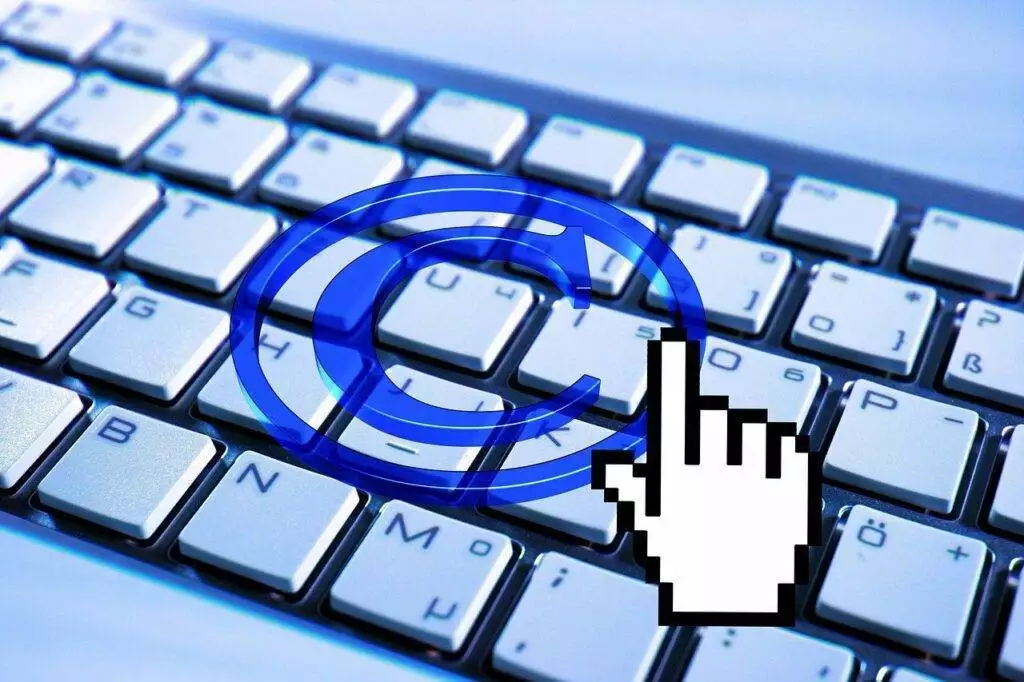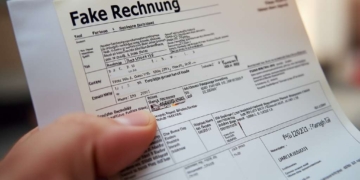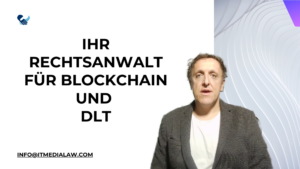- The Digital Services Act (DSA) came into force on February 17, 2024 and protects users and rights holders.
- It establishes liability regulations for online platforms that strengthen user rights and enable the enforcement of claims.
- The principle of "Stoererhaftung" prevents a general monitoring obligation and protects freedom of expression.
- Platform operators must act immediately in the event of concrete indications in order to avoid liability.
- Recent court rulings emphasize the need for precise notifications for operator liability.
- DSA enables influencers and authors to enforce their rights, even if offenders remain anonymous.
- The regulations promote innovative competition and strengthen law enforcement in the digital space.
Since coming into force on February 17, 2024, the Digital Services Act (DSA) has established fundamental liability rules for online platforms that significantly strengthen the protection not only of users but also of rights holders. For influencers, authors and other infringed parties, the DSA provides a legally secure framework if no claims can be asserted against the actual infringer – who often acts anonymously. itmedialaw.com is an experienced law firm in IT law, competition law, copyright law and media law and is ready to provide clients with comprehensive advice in such cases and enforce their claims.
Liability principles in DSA: The principle of fault-based liability
The DSA follows the proven principle of “Stoererhaftung”, according to which platform operators are generally not liable for third-party content as long as they have no concrete knowledge of legal violations. Operators are only liable if they learn of an illegal publication through a precise and comprehensible user report and do not act immediately despite this knowledge. This knowledge must be so specific that the offending content can be clearly identified. The regulation prevents operators from being forced into a general monitoring obligation, which protects freedom of expression and at the same time guarantees the protection of the rights of third parties. Operators cannot rely on the technical infrastructure alone to absolve themselves of their responsibility. Rather, they are obliged to establish internal processes that enable the rapid review and removal of illegal content. The DSA builds on the foundations of the previous Telemedia Act and modernizes them to meet the challenges of the digital world. This leads to a clear distinction between the pure transmission of content, short-term caching and permanent hosting. Operators must take immediate action to prevent damage in the event of concrete and comprehensible indications. If these obligations are not met, liability is triggered as indirect fault liability. This regulation increases consumer confidence in digital services as it ensures that illegal content is removed quickly. At the same time, rights holders are strengthened, as they can assert their claims if the operator fails to respond. The DSA thus promotes a balance between innovative online services and the protection of individual rights. The obligation to set up reporting and remedial procedures also helps to ensure that specific infringements of rights are remedied promptly. Operators have the opportunity to free themselves from liability by processing complaints carefully and transparently. Overall, this liability regulation ensures that the digital communication landscape is made more secure and trustworthy. This clear legal situation will sustainably strengthen both competition and law enforcement in the digital space. Operators are thus provided with a precise framework that encourages them to act proactively as soon as specific legal violations are reported.
Practical court decisions and their significance
Recent court rulings underline the practical implementation of the DSA regulations and provide clear guidelines for platform operators and rights holders. In a landmark ruling by a regional court, it was determined that an operator is already liable from the moment it becomes aware of misleading and trademark-infringing advertisements. The court emphasized that the operator must be specifically informed of the infringement and must then take immediate action to prevent further damage. A precise notification of the infringement is essential so that the responsible party can identify the offending content without further lengthy checks. Another decision by a higher regional court made it clear that vague or unspecific information is not sufficient to trigger liability. These courts emphasized that claims can only be successfully asserted if the reported infringements are clear and comprehensible. The rulings show that the previous guidelines of the Telemedia Act remain largely unchanged, but have been clarified under the new DSA provisions. In practice, this means that platform operators are not automatically liable in their role as mere hosting service providers, but only when they receive specific and detailed information. The judges emphasized the need for a system that ensures the protection of freedom of expression on the one hand and effectively enforces the rights of infringed parties on the other. Thus, liability is only activated when there is a clear cause, which leads to a balanced application of the law. At the same time, these decisions provide a reliable legal basis for influencers and authors who want to take action against platform operators if the actual infringer cannot be held liable. The courts have thus set a clear standard that increases the requirements for the substantiation of complaints. This case law also strengthens the preventative nature of the DSA, as operators are encouraged to optimize internal processes to respond quickly to specific indications. The decisions contribute to legal certainty and make it clear that platform operators must take action if they become aware of a specific breach of the law. They also make it clear that liability is not triggered across the board, but in a targeted manner. This development is an important step towards ensuring a fair and transparent digital market. The rulings help to ensure that rights holders can also effectively enforce their claims against large platforms. Overall, they provide a solid basis for future legal disputes in the digital space and strengthen confidence in the enforcement of the DSA.
Strategic importance for influencers and rights holders
For influencers, authors and other injured parties, the DSA opens up a strategic approach to asserting their claims, even if the actual infringer is anonymous or cannot be held directly liable. It is often difficult to take direct action against the perpetrator because their identity remains hidden or they evade responsibility. In such cases, the liability of the platform operator, who acts as an intermediary service provider, enables the effective enforcement of rights. This is particularly relevant when it comes to the protection of trademarks, personal rights or copyrighted content. Rights holders can thus hold the operator liable if the latter fails to act in good time despite specific indications. The strategic use of this regulation offers additional leverage to enforce claims for injunctive relief and damages. Influencers benefit from this as they do not have to rely solely on enforcement against the original infringer. Instead, they can take legal action against the platform operator, who is already liable for precise notifications. This approach creates additional pressure on operators to optimize their internal control mechanisms and remove illegal content quickly. An effective reporting and remedial procedure is therefore not only in the interests of consumer protection, but also a key element in safeguarding the rights of authors and influencers. This regulation creates an incentive for platforms to act actively and preventively in order to avoid liability risks. The strategic orientation of the DSA thus strengthens the legal foundation for all those who want to enforce their rights in the digital space. Influencers and rights holders are given a clear instrument to take legal action if the platform operator fails to respond adequately. This makes it possible to obtain at least partial compensation for the damage caused and to protect public discourse. The possibility of holding the platform operator liable has a preventative effect and can curb future infringements. The DSA creates a dynamic interplay between the obligations of the operators and the claims of those affected. In this way, a fair and balanced reconciliation of interests is achieved, which contributes to greater legal certainty and trust in the digital space in the long term. This strategic importance makes the DSA an indispensable instrument for all those who depend on fair competitive conditions and the protection of their rights in the digital environment.
Conclusion
I firmly believe that the Digital Services Act creates a clear and practical legal framework that enables me to effectively help rights holders and infringed parties to obtain their rights. In my daily work, I use my many years of expertise in IT, competition, copyright and media law to precisely analyze cases and develop tailor-made strategies. In doing so, I attach great importance to the precise formulation of complaints so that a specific identification of the infringement is possible and the platform operator can be held liable. I know that the direct route against the actual infringer is often blocked – which is why I specifically use the legal claim against the platform operator, who acts as an intermediary to enforce your claims.
I support you from the establishment and optimization of internal reporting and remediation procedures through to the preparation and implementation of legal proceedings. Through my transparent and comprehensible advice, I ensure that you know exactly what steps are necessary to protect your rights in the long term. My aim is to offer you security in a complex regulatory environment and to avoid legal pitfalls. In doing so, I rely on an in-depth analysis of current case law to show you realistic prospects of success. I am your strong partner when it comes to taking action against platform operators who fail to act despite specific indications. With my commitment, I ensure that the protection of your rights not only exists in theory, but is also enforced in practice. You can rely on my expertise to effectively represent your interests in the digital space and make them future-proof. Contact me to find out more about your legal options and successfully enforce your claims together.












































